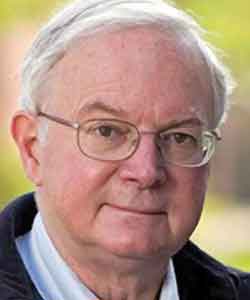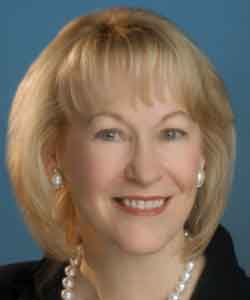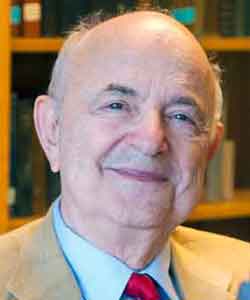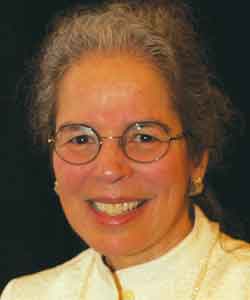Reflecting on a Lifetime of Achievement
As part of APS’s 25th Anniversary celebration, the Board of Directors is honoring 25 distinguished scientists who have had a profound impact on the field of psychological science over the past quarter century. Eight individuals have been selected to receive the James McKeen Cattell Fellow Award, honoring a lifetime of significant contributions to applied psychological research. The remaining 17 scientists are receiving the William James Fellow Award, which recognizes their significant intellectual contributions to the basic science of psychology. In this issue of the Observer, APS continues the series profiling four of these eminent scientists: John Darley, Patricia K. Kuhl, Nancy Adler, and Irving I. Gottesman.
 John Darley
John Darley
Princeton University
William James Fellow Award
John Darley’s contributions to psychological science cover a vast range — from social comparison and attribution processes, expectancy confirmation, deviance and conformity, and stereotyping and prejudice to energy conservation, health psychology, morality and the law, the function of punishment, and the way organizations inadvertently promote evil.
Darley is best known for his innovative theory and research, in collaboration with Bibb Latané, on bystander intervention in emergencies. That research interest largely stemmed from the historic 1964 murder of Kitty Genovese, who was stabbed to death near her home in New York City in the presence of 38 witnesses, none of whom even phoned the police.
Darley’s and Latané’s work is summarized in the classic, award-winning book, The Unresponsive Bystander: Why Doesn’t He Help? The research convinced Darley that more people present at the scene of an emergency could reduce the chances that anyone would help, either due to pluralistic ignorance (the assumption that because no one is helping, everything must be all right) or diffusion of responsibility (a diminished sense of personal responsibility when others are present).
More recently, Darley’s research focused on the intersection of criminal justice and ordinary people’s moral judgments. In work with Paul Robinson, a law professor at the University of Pennsylvania, he criticized the tendency of the criminal justice system to rely entirely on deterrence as the basis for assigning punishment durations to those who commit crimes. They note that the severity of sentences has less effect on crime rates than people expect. Darley’s research has consistently provided an exemplary model, as well as a catalyst, for those wishing to bring theoretically sophisticated analysis of basic psychological processes to bear on important social problems.
 Patricia K. Kuhl
Patricia K. Kuhl
University of Washington
William James Fellow Award
Patricia K. Kuhl is internationally recognized for her research on early language and brain development, and studies that show how young children learn. She is co-director, with her husband Andrew N. Meltzoff, of the University of Washington’s Institute for Learning & Brain Sciences. Kuhl’s lab is using event-related potentials, functional MRI, diffusion tensor imaging, and magnetoencephalography to investigate how infant and adult brains process speech. She has also conducted research on language development in autism, and is particularly interested in the role that the social brain plays in language learning.
Kuhl is widely known for proposing the Native Language Magnet (NLM)/Neural Commitment Theory to account for the developmental change by which infants’ ability to discriminate speech sounds becomes increasingly specific to their native language as they age. This model shows that babies use their computational abilities to “crack” the speech code and that their social skills play an important role in learning. NLM pulls together diverse research interests into a single model that integrates cognitive and auditory processing skills, links between speech perception and production, statistical learning, and social factors that affect learning.
Kuhl’s research has played a major role in identifying critical periods in development. Her work extends to linguistics and education, with applicability to bilingual education and atypical language development in children with autism; to neuroscience; and to engineering in terms of programming computers to respond to spoken language.
Nancy Adler
University of California, San Francisco
James McKeen Cattell Fellow Award
Nancy Adler has been a pioneer in health psychology, having co-edited the first textbook on that topic and run one of the first graduate programs in health psychology at the University of California, San Francisco. he has also led, for more than 20 years, a postdoctoral program in health psychology funded by the National Institutes of Health.
Adler has investigated why individuals engage in health-damaging behaviors and how their understanding of risk affects their choices. This research has primarily been in reproductive health, examining adolescent decision making regarding contraception, conscious and preconscious motivation for pregnancy, perceptions of risk of sexually transmitted diseases, and the use of reproductive technologies for infertility. She has also studied the impact of socioeconomic status on health. As chair of the MacArthur Research Network on Socioeconomic Status (SES) and Health, she has been investigating how social, psychological, and biological factors associated with SES act together to determine the onset and progression of disease.
She is also examining how the relationship of SES and health may differ depending on gender and ethnicity. Under her leadership, the network raised the study of health disparities all over the globe to a new level of sophistication. Adler is known to her colleagues as someone who always has a smile, sound advice, and a generous heart. She is most often seen mentoring junior colleagues and students.
Look for Nancy Adler’s reflection on “Health Disparities: Taking on the Challenge” in the November 2013 issue of Perspectives on Psychological Science.
 Irving I. Gottesman
Irving I. Gottesman
University of Minnesota
James McKeen Cattell Fellow Award
Irving I. Gottesman is known internationally for his work in the field of behavioral and psychiatric genetics. His research has focused on the many ways that genetic factors interact with and augment environmental influences that lead to endophenotypes for psychopathology. In 1966, at the University of Minnesota, Gottesman created the United States’ first academic program on human behavioral genetics.
His pioneering focus drew burgeoning attention to — and funding for — cross-disciplinary approaches to psychological science. Gottesman became interested in genetics in the mid-1950s, straying from the Freudian zeitgeist that then dominated behavioral research. His first extensive study of the genetics of schizophrenia followed British patients in the Maudsley-Bethlem hospital’s registery of twin admissions. By comparing sets of identical twins, who share the same genetic profile, with fraternal twins, whose genes differ, he confirmed that genes were an undeniable factor in predisposition for schizophrenia.
Gottesman’s research with imprisoned twins in Denmark provided evidence supporting a role for genetic influences on severe criminal behavior. But he has emphasized that environment also strongly influenced those behavioral patterns. And he has found that genetic heritability on IQ variance rises among children with higher socioeconomic status (SES), but drops among low SES children, again using the twin method. He concluded from this that genes have a weaker influence on individual differences in IQ than poverty. Gottesman has also researched and written about the abuses of genetic research in Nazi Germany, and he served as an expert witness in a Chinese human rights case over a law that allowed citizens to be denied employment for having a parent with schizophrenia. He has truly embraced humanistic views in his role as a scientist.






APS regularly opens certain online articles for discussion on our website. Effective February 2021, you must be a logged-in APS member to post comments. By posting a comment, you agree to our Community Guidelines and the display of your profile information, including your name and affiliation. Any opinions, findings, conclusions, or recommendations present in article comments are those of the writers and do not necessarily reflect the views of APS or the article’s author. For more information, please see our Community Guidelines.
Please login with your APS account to comment.